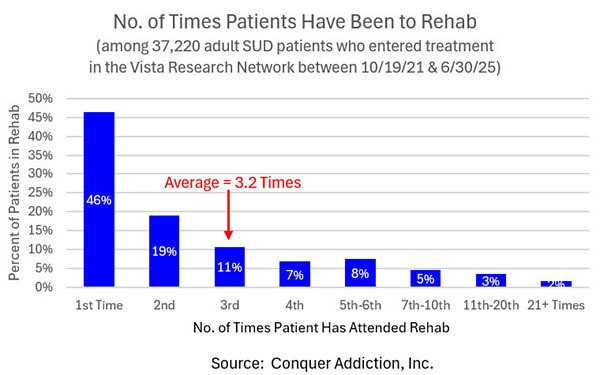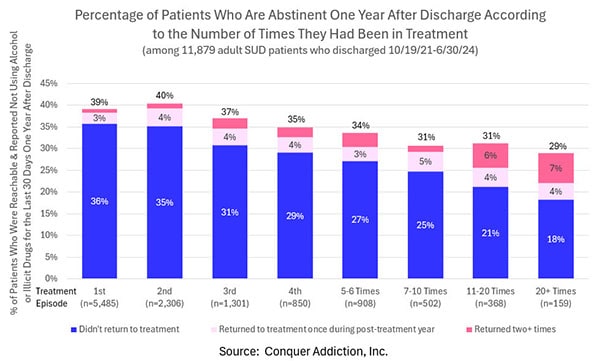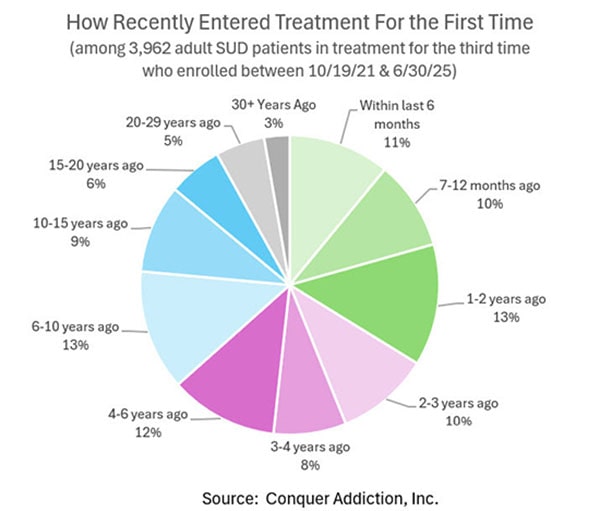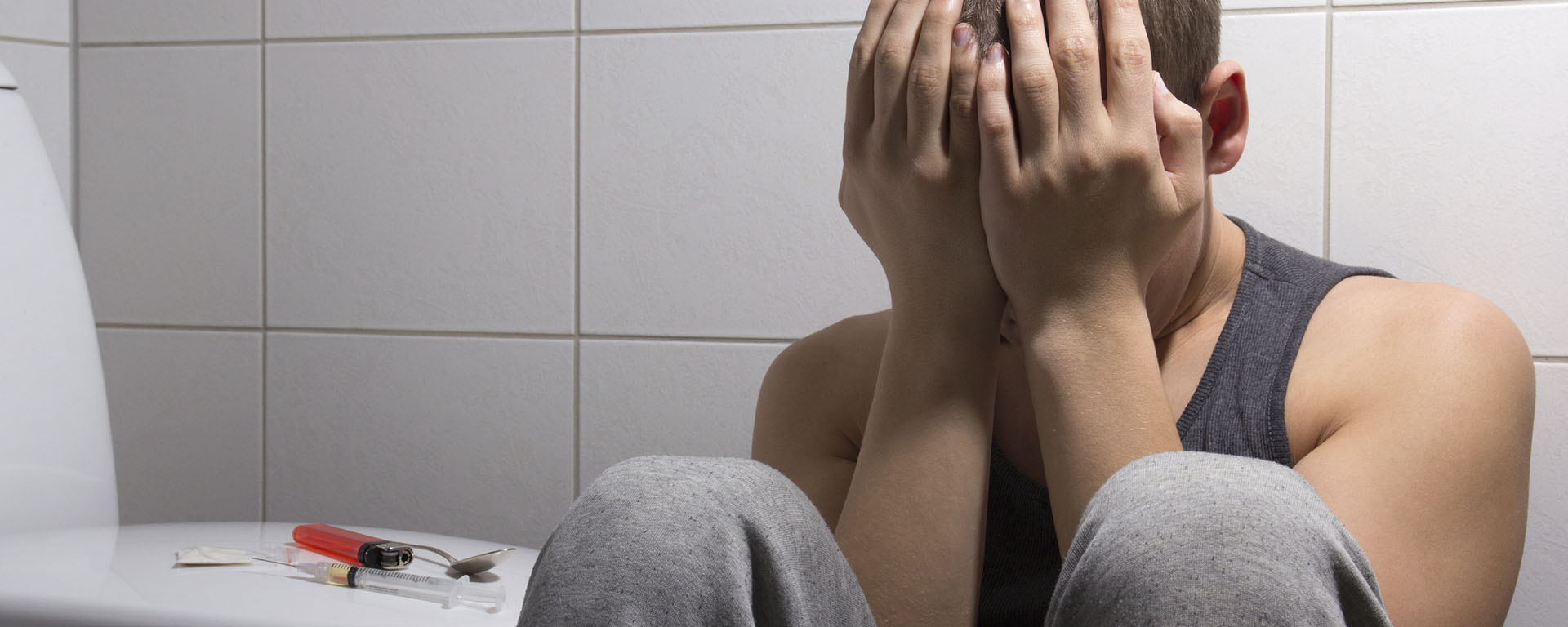
All of us who’ve ever loved someone with an addiction have wanted to believe that one trip to rehab would be enough. Surely once our smart child or spouse gets the poison out of their system and can think clearly again, they’ll recognize that their drinking or drug use is destroying their life and that will be it. They’ll never use again.
Unfortunately, for most people, recovery is a process. While some people can go to rehab once and stay sober forever after, the majority can not.
The average patient attending rehab is in treatment for the third time:

However, this average is a bit misleading because a small percentage (5%) of patients have been in treatment 11 or more times, skewing the average pretty dramatically. In fact, two-thirds of patients in a typical rehab will be in SUD treatment for the first or second time.
The good news is that for some people, once really is enough. In Conquer Addiction’s research, 36% of people in rehab for the first time were not using drugs or alcohol one year later without having returned to rehab in the interim:

Of course, since addiction is a chronic disease, some of these 36% will relapse down the road and need additional treatment.
Another thing to be aware of is that some people will have long periods of time when they’re doing well interspersed with episodes when they lose themselves in their addiction again. Illustrating this, it’s interesting to see the tremendous variation in the length of time between patients’ first and third episodes of treatment in our data:

While 21% of patients have gone to treatment three different times in their first year, on the other end of the spectrum, 23% of patients have had more than a ten year gap between their first and third episodes of treatment.
So the most honest answer to “how many times does someone need to go to rehab?” is “it depends”.
My best advice is to maximize your loved one’s chances of achieving long-term sobriety after each episode of rehab by making sure they go to an effective rehab, encouraging them to complete the full continuum of care recommended by the rehab, and helping them create a strong support network around themselves when they return home.






